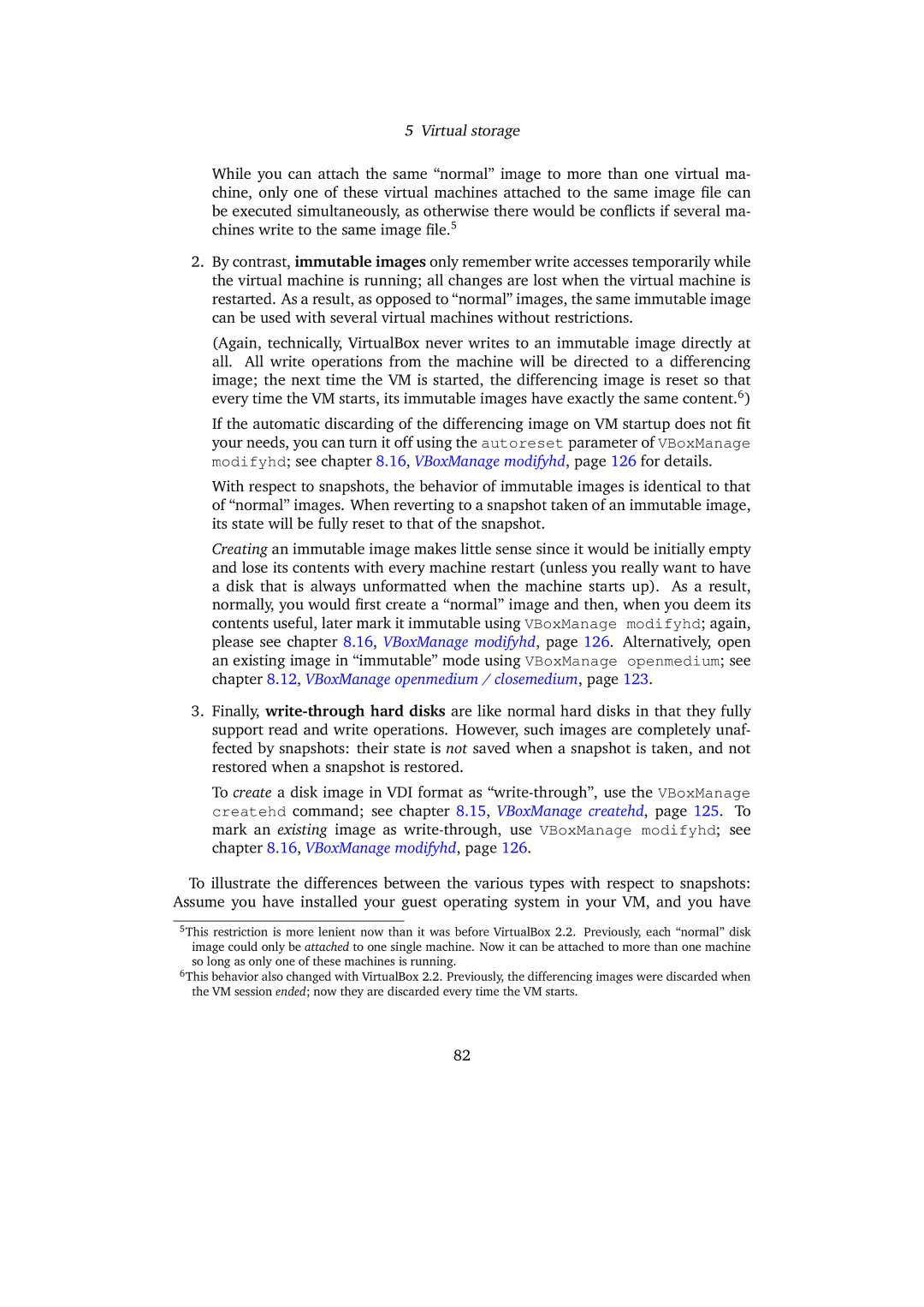5 Virtual storage
While you can attach the same “normal” image to more than one virtual ma- chine, only one of these virtual machines attached to the same image file can be executed simultaneously, as otherwise there would be conflicts if several ma- chines write to the same image file.5
2.By contrast, immutable images only remember write accesses temporarily while the virtual machine is running; all changes are lost when the virtual machine is restarted. As a result, as opposed to “normal” images, the same immutable image can be used with several virtual machines without restrictions.
(Again, technically, VirtualBox never writes to an immutable image directly at all. All write operations from the machine will be directed to a differencing image; the next time the VM is started, the differencing image is reset so that every time the VM starts, its immutable images have exactly the same content.6)
If the automatic discarding of the differencing image on VM startup does not fit your needs, you can turn it off using the autoreset parameter of VBoxManage modifyhd; see chapter 8.16, VBoxManage modifyhd, page 126 for details.
With respect to snapshots, the behavior of immutable images is identical to that of “normal” images. When reverting to a snapshot taken of an immutable image, its state will be fully reset to that of the snapshot.
Creating an immutable image makes little sense since it would be initially empty and lose its contents with every machine restart (unless you really want to have a disk that is always unformatted when the machine starts up). As a result, normally, you would first create a “normal” image and then, when you deem its contents useful, later mark it immutable using VBoxManage modifyhd; again, please see chapter 8.16, VBoxManage modifyhd, page 126. Alternatively, open an existing image in “immutable” mode using VBoxManage openmedium; see chapter 8.12, VBoxManage openmedium / closemedium, page 123.
3.Finally,
To create a disk image in VDI format as
To illustrate the differences between the various types with respect to snapshots: Assume you have installed your guest operating system in your VM, and you have
5This restriction is more lenient now than it was before VirtualBox 2.2. Previously, each “normal” disk image could only be attached to one single machine. Now it can be attached to more than one machine so long as only one of these machines is running.
6This behavior also changed with VirtualBox 2.2. Previously, the differencing images were discarded when the VM session ended; now they are discarded every time the VM starts.
82
